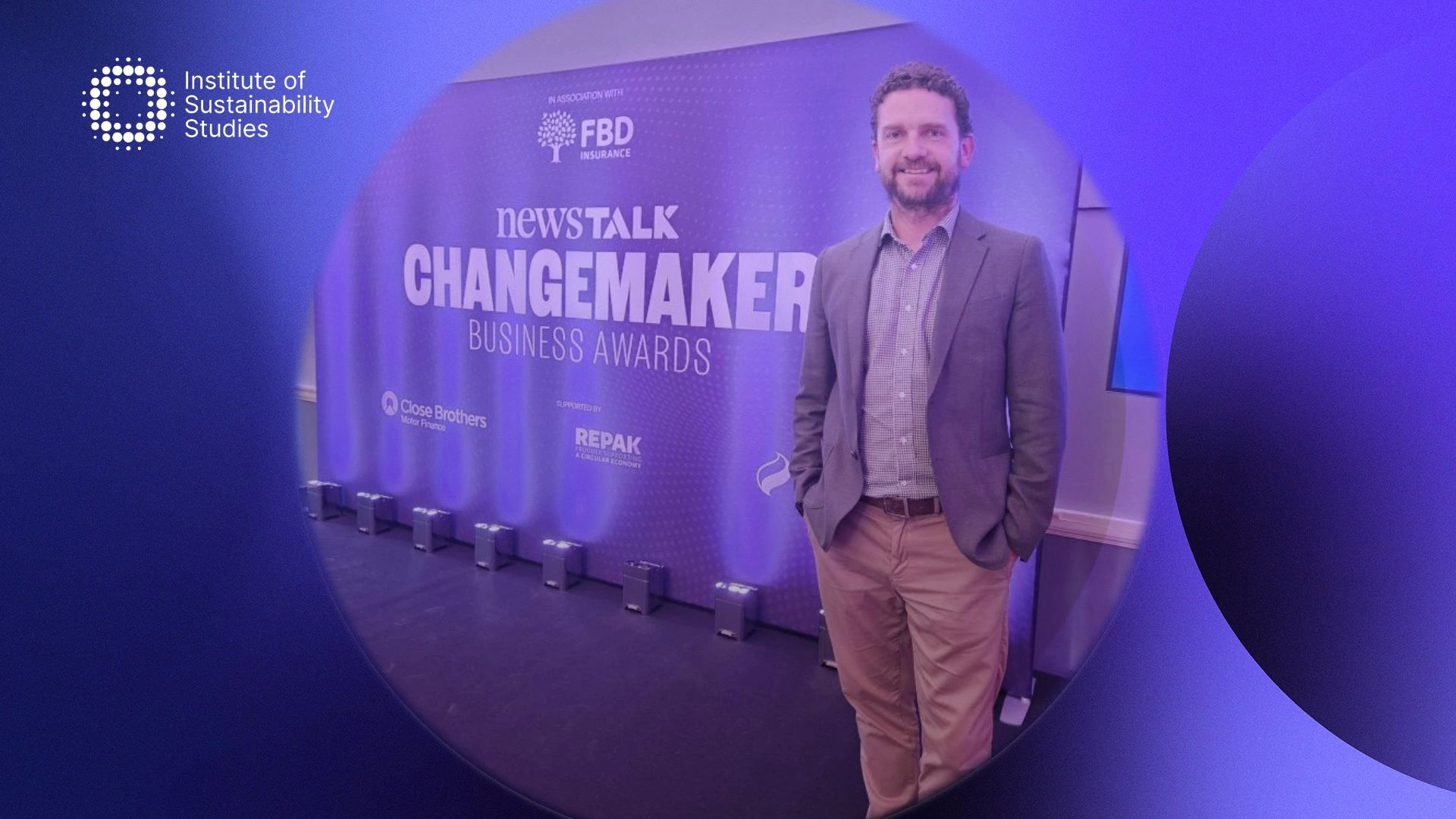The importance of business sustainability cannot be understated, but what does sustainability look like for businesses? Are the correct business sustainability course available for professionals? Today, more and more organisations are implementing sustainable practices to utilise their business as a tool for good, realizing they can do well by doing good.
They are aware of the threats posed by climate change, biodiversity loss, and social inequality and want to make a difference. Additionally, pressures from stakeholders have increased due to growing sustainable regulations, buyer sustainability requirements, and the increased demand for environmentally-friendly products and services.
These pressures have begun to trickle down to SMEs leading to many becoming curious about how to transition to a more sustainable business. Moreover, there is a lot of misunderstanding about what it means to be sustainable, and business leaders often place themselves under unrealistic expectations. Sustainable businesses are those that take steps to protect, conserve, or replace our natural resources without negatively impacting the environment, community, or society as a whole. A business sustainability course can solve many of these issues.
Numerous large organisations are taking the lead when it comes to establishing sustainable practices within their business. As a result, many SMEs are inspired by their stance. However, taking action on sustainability can be a major challenge for SMEs as they have fewer resources, and less access to capital than larger corporations and can be daunted by the scale of the problem and how to start their sustainability journey.
Organisations integrating sustainable practices within their operations help fight against severe environmental and social problems like biodiversity loss, climate change, human rights violations, and global health and wellbeing. Ultimately, these businesses strive to have a positive impact on both the planet and society. They act in their best interest to ensure this impact considering a number of environmental, social, and economic factors when making decisions, and try to address some of the world’s most pressing issues. They have begun the journey to master the profit with purpose approach, ensuring that short-term profits don’t lead to long-term trade-offs affecting people and the planet. Companies failing to assume responsibility can lead to further environmental degradation and social injustices
Upskill your knowledge to drive sustainable change with an online, practical business sustainability course
Why is sustainability important to business?
The importance of sustainability in business is real and can’t be understated. Building a sustainable business allows you to drive environmental and societal change while future proofing your organisation for success. There are a number of compelling reasons why a SME should take action on sustainability and why it is the right time to act.
Movement of sustainable capital
Business leaders have seen the importance of implementing purpose as well as profit, driven by investors’ focus on ESG (Environmental, Social, Governance) credentials. This has led them to quickly adopt ESG metrics to monitor and report upon their sustainability initiatives and progress. 2021 was a bumper year for ESG investing with record inflows to funds focused on ESG issues. Developing a sustainability plan or roadmap can aid your attractiveness to investors ensuring continued influx of money and long term growth.
Financial gain
Evidence shows that organisations that redirect their focus to deliver a triple bottom line above sole profit generation are seeing the financial benefits of their actions. The triple bottom line or three P’s – profit, planet and people is a business concept that allows businesses to measure their environmental and social impact and financial performance. For example, one report from the largest global disclosure platform, CDP (Carbon Disclosure Project), revealed that businesses that are actively planning for and managing climate change secure an 18% higher return on investment than companies that aren’t. In addition, a 67% higher return on investment than companies refraining from disclosing their emissions. Although just one metric, it is a clear indication of the direction of travel and the financial benefit to be gained from incorporating sustainable practices and disclosure systems. A more recent paper concluded that there is a positive relationship between financial performance and corporate sustainability. A report from Morningstar on the 2021 stock market report clearly cemented this finding with companies that had comprehensive sustainability strategies seeing some of the highest returns. For this reason, many who build a sustainable, profitable business live by the triple bottom line approach.
Protect brand reputation and attract talent
Investors are not the only stakeholders who are interested in businesses’ green transition. In 2022, we saw an increased public outcry for nations and companies to take action on sustainability, driven by increased environmental disasters such as droughts, wildfires and heatwaves. Taking action on sustainability and being transparent about your impact strengthens trust among all your stakeholders, protecting your brand and your organisation from failure to act on global issues such as human rights issues. This is particularly important in relation to talent attraction and retention with an increasing number of employees pressing their employers to take action on today’s sustainable challenges. Up to 50% of Gen Zs and Millennials, who make up half of the full-time workforce globally, are putting pressure on their employers to take action on climate change while 79% of potential candidates consider a organisations social and environmental credentials before deciding where to work.
Boost your competitive advantage
The aforementioned benefits to a sustainable transition can be a major boost to your competitive advantage as stakeholders become more aware of global issues and demand change from businesses. Consumers are demanding businesses to take action on sustainability to enable them to become more eco-friendly. Consumers are using their purchasing power to drive this change and enable them to live a more sustainable life. Public bodies are also seeking to procure goods and services at a decreased environmental impact, Ireland has committed to implementing Green Public Procurement (GPP) in all tenders using public funds by 2023. Therefore, committing to sustainable practices and delivering green products and services will ensure you remain competitive among consumers and hold the edge on winning tenders.
Stay ahead of regulation
Large corporations are being required to comply and report on a raft of new ESG legislation and regulations forcing companies to formalise their sustainability transformation efforts, integrate sustainability objectives into their business strategy, and improve communication and awareness through an increase in transparency. In 2021, the EU introduced new rules on non-financial reporting amending the original Non-financial Reporting Directive (NFRD) and introducing the Corporate Sustainability Reporting Directive (CSRD) extending the scope of companies that must comply. While in the US, regulatory considerations of ESG topics has significantly increased at both federal and state levels since 2021. In March 2022, the Securities and Exchange Commission (SEC) proposed a climate disclosure rule mandating corporate ESG data disclosure requirements with the aim to improve consistency, quality and comparability of company-reported information. Mandatory disclosure is gaining momentum, SMEs will begin to feel the pressure of these regulations beginning to fall onto their table either through direct compliance legislation or indirectly through their large buyers, in a trickle down effect, who are required to take action on their sustainable footprint including their supply network.
Businesses with sustainability embedded in their DNA and have a clearly identified plan of how to achieve a sustainable transformation enabling their drive to business success. The above benefits are just an example to highlight the business case for opting to become a sustainable operation but they show clearly that it is possible to increase your bottom line using the triple bottom line approach. Going green does not mean stepping away from your business goals but rather adding purpose to your organisation. It is this purpose that can help you grow and achieve financial success.
Create actionable plans, master compliance, and gain practical skills to drive sustainability in your organisation
How to build sustainability in business
If you want to build a sustainable business, you need to take some time to craft a sustainable plan or framework. Below are five elements to take into account when creating a sustainability plan for your small business:
-
- Learn about sustainability and understand why it is vital to make these changes.
-
- Look at all areas of your business and see where you can make improvements to impact society and the planet positively.
-
- Seek out opportunities to innovate, collaborate and work with your wider stakeholders.
-
- Create your vision and mission in-line with your care for the environment and society as well as your business offering to grow your purpose-driven business.
-
- Always review how you are doing, communicate clearly, take on feedback, and make changes to improve.
-
- Get your staff up-skilled by taking a business sustainability course.
It’s clear that businesses that embed social and environmental initiatives into their strategy will ultimately see financial success and long-term growth. Beyond these goals, it also means working to fight issues on a grander scale to secure a more sustainable future and vibrant society.
Are you looking to learn more?
Whether you are SME owner, sustainability senior leader or simply are interested in business sustainability, learn more about what it takes to be a sustainable business and the initial steps needed to create a sustainable plan for your business by taking one of the business sustainability courses with the Institute of Sustainability Studies.










